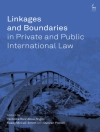Confronting the evils of World War II and building on the legacy of the 1776 Declaration of Independence and the 1789 French Declaration of the Rights of Man and of the Citizen, a group of world citizens including Eleanor Roosevelt drafted the Universal Declaration of Human Rights. Adopted by the United Nations in 1948, the Universal Declaration has been translated into 300 languages and has become the basis for most other international human rights texts and norms. In spite of the global success of this document, however, a philosophical disconnect exists between what major theorists have said a human right is and the foundational text of the very movement they advocate.
In Inherent Human Rights: Philosophical Roots of the Universal Declaration, philosopher and political theorist Johannes Morsink offers an alternative to contemporary assumptions. A major historian of the Universal Declaration, Morsink traces the philosophical roots of the Declaration back to the Enlightenment and to a shared revulsion at the horrors of the Holocaust. He defends the Declaration’s perspective that all people have human rights simply by virtue of being born into the human family and that human beings have these rights regardless of any government or court action (or inaction). Like mathematical principles, human rights are truly universal, not the products of a particular culture, economic scheme, or political system. Our understanding of their existence can be blocked only by madness and false ideologies. Morsink argues that the drafters of the Declaration shared this metaphysical view of human rights. By denying the inherence of human rights and their metaphysical nature, and removing the concepts of the Declaration from their historical and philosophical context, contemporary constructivist scholars and pragmatic activists create an unnecessary and potentially dangerous political fog. The book carefully dissects various human rights models and ends with a defense of the Declaration’s cosmopolitan vision against charges of unrealistic utopianism and Western ethnocentrism.
Inherent Human Rights takes exception to the reigning view that the Golden Rule is the best defense of human rights. Instead, it calls for us to ‘follow the lead of the Declaration’s drafters and liberate the idea of human rights from the realm of the political and the juridical, which is where contemporary theorists have imprisoned it.’
表中的内容
Introduction. The Need to Think Beyond the Political
Chapter 1. The Metaphysics of Inherence
—Enlightenment Precedents
—From Natural to Human Rights
—Duties and the Fallacy of Implementation
Chapter 2. Obeying the Conscience of Humanity
—Rights from the Wrongs of the Holocaust
—The Doctrine of Manifest Illegality
—The Framework of Moral Intuitionism
Chapter 3. The Shortcomings of the Golden Rule
—Micro: Alan Gewirth’s Rationalization
—Macro: John Rawls’s Ethnocentrism
Chapter 4. Human Rights Cosmopolitanism
—The Moral World Picture of the Declaration
—The Capabilities Approach to Human Rights
—Fitting in Patriotism and Multiculturalism
Chapter 5. The Charge of Unrealistic Utopianism
—New Rights Call for a New World Order
—The Construction of Human Rights Thresholds
—Social and Economic Covenant Examples
Chapter 6. Human Rights and Democratic Participation
—Habermas on Popular Sovereignty and Human Rights
—The Right to Participation in Substantive Democracies
Notes
Index
Acknowledgments












